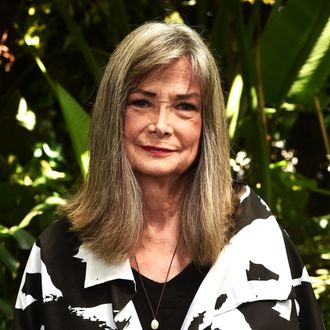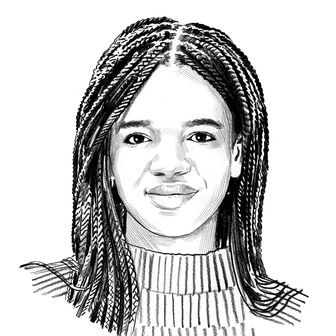
How often does a person wanted for questioning in the murder of a man in Zambia write runaway best sellers seemingly based on that murder and barely anyone bats an eyelash? Delia Owens, the writer of the best-selling novel Where the Crawdads Sing, is still a person of interest in the 1995 death of a poacher in the North Luangwa region of Zambia. Prior to her life as a notable novelist — the book was published in 2018, and the Reese Witherspoon–produced movie adaptation premieres in theaters July 13 — Owens researched large mammals with her husband, Mark, and her stepson, Christopher, in the former British colony. Much to their dismay, the nature preserve was overrun with poachers who sought ivory and other animal products for the bustling black market. Air raids directed by Mark and armed encounters with poachers were the norm, according to the ABC News documentary series Turning Point and an extensive 18,000-word New Yorker investigation by Jeffrey Goldberg. One episode of the doc filmed and broadcast the murder of a poacher, ostensibly committed by someone connected to the Owens family. And according to new reporting by Goldberg published July 11 in the The Atlantic, Delia and Mark are still wanted for questioning in the murder. “I can’t even go into the U.S. embassy with a camera,” said Lillian Shawa-Siyuni, Zambia’s chief prosecutor. “I want to know how Mark and Delia brought guns into Zambia and turned themselves into law-enforcement agents.” The investigation, she and others said, has been hampered by the lack of an extradition treaty between Zambia and the United States and by ABC’s apparent refusal to cooperate in the investigation. “There is no statute of limitations on murder in Zambia,” Siyuni said. “They are all wanted for questioning in this case, including Delia Owens.”
The Owenses were no strangers to animal research or human threats to wildlife — in the 1970s, the two traveled to Botswana to study wildlife until the government kicked them out for being too nosy about the fencing around a stretch of the Kalahari to herd cattle, changing the wildebeest’s migrating patterns and causing mass dehydration. (Botswana eventually changed its position on cattle herding after American politicians caught wind of the issue). They later settled in Zambia, where, over time, they raised an armed militia to combat poachers who functioned outside the Zambian government. The ABC News documentary suggests the couple sought to protect a mythologized version of the continent, one that conveniently leaves out the fact of imperialism and its detrimental effects. “This is the real Africa, the way it was two hundred years ago,” Delia told host Meredith Vieira on Turning Point. According to Goldberg’s initial reporting, the Owenses gained a reputation for resenting African people’s presence alongside the animals they studied and fought for. “Their whole attitude was ‘Nice continent. Pity about the Africans,’” P.J. Fouche, a hunter who worked with the couple, told Goldberg.
Where the Crawdads Sing itself is rife with questionable portrayals of Black people — a 2019 Slate report about the book notes that the Black characters speak in a sort of exaggerated minstrel dialect, saying things like “Ya know ya can tell me. In fact, we gwine stand right here tills ya tell me.” Somehow, though, the book and the movie are still being promoted by influential people such as Witherspoon. That’s wild.


